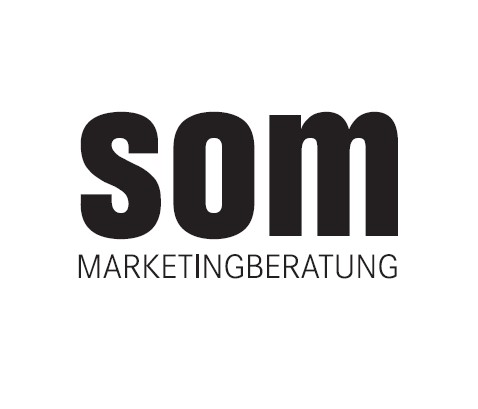Beiträge
Ford Keyfree Login
Automotive, Digital, Mobile, Social Media
Ford Keyfree Login from Ogilvy Paris on Vimeo.
Ford Spending 25% of Marketing on Digital and Social Media
Automotive, Brand Management, Digital, Marketing Strategy, Social MediaFord goes digital!
Ford Motor Co. this year will spend 25% of its marketing dollars on digital media, more than twice the amount spent by the industry.
Read more at BusinessWeek The Auto Beat
Ford focusing on consumer generated advertising (to increase authenticity?)
Automotive, Marketing Strategy, Social MediaThe following article has been posted by David Kiley on BusinessWeek’s „The Auto Beat“ and deals with Fords renewed focus on its 2007 „Drive One“ campaign where they invited consumers to try their cars and share their experiences with the rest of the country.
Advertising: Ford Turns Back To Owners To Tell Its Story
Posted by: David Kiley on October 08
Ford Motor Co. is sticking with its “Drive One” ad campaign launched in 2007, but infusing a little more emotion into the effort. But don’t expect to see people gushing on camera about their Ford.
The automaker is at an interesting crossroads. It clearly has momentum in the marketplace after being the only one of the three Detroit automakers to escape Chapter 11 and government bailout in 2009. Sales of Ford cars and trucks have fallen by 21% to 1.058 million units in the first nine months of 2009, but the brand’s market share rose to 13.5% from 12.5%. The Ford brand’s drop was less than the nation’s top-selling Toyota brand’s 26% drop in sales.
But there is a feeling inside the company that, despite the terrible economy and resulting calamity in the auto industry, Ford’s time is now.
For the past year, the company has been focused on pitching very rational messaging: fuel economy, quality, technology like its Sync telematics system. Ford’s top marketing executive Jim Farley says the strategy has been to keep giving the public rational reasons they need to consider, care about and buy a Ford.
As Ford’s own research shows, too few people associate the feelings of “cool” and “savvy” with the purchase of a Ford. It has to change that, and accelerate its efforts, if it is going to fully take advantage of the present weakness of GM, Chrysler and even Toyota.
The slogan, “Drive One,” has been met with a mostly tepid reaction from the public. It ties into CEO Alan Mulally’s mantra that he has driven into the company—“One Ford.” That refers to the idea every employee must embrace that it is one worldwide company and brand, not a portfolio of companies the way it used to be: Ford North America, Ford Europe, Ford Asia-Pacific, Jaguar/Land Rover, Volvo.
But there hasn’t been a lot of blood flowing to the campaign, or the slogan itself.
The new push on “Drive One” includes several interesting pieces. First, the automaker will begin this week running what will eventually become at least 45 15-second ads on TV and the Net which show real people engaging and talking about some aspect of a Ford. These ads will be overlaid the usual packet of 30 and 60 second ads for models, as well as dealer advertising.
The look, energy and voice of these 15 second ads seem just right. Ford has momentum both in sales and perception, and these very honest and engaging ads come off as breathing some new wind into the sails.
The article can be found at: http://www.businessweek.com/autos/autobeat/archives/2009/10/advertising_for.html
Ford not recognized as a German brand
Automotive, Brand Management, Marketing StrategyThe drama about German automaker and GM subsidiary Opel is not only an advantage for rivaling automakers. Although profiting from consumer uncertainties by winning former Opel drivers, the worries and the public discourse about the future of the Opel brand also did harm Opel rivals. According to a current FAZ article, a central insight for Ford was that Opel not Ford is generally being perceived as the more German of the two brands. Thus it can be said that the Opel crisis also helped Opel to strengthen consumer loyalty and to interest patriotic Germans for their affordable vehicles. To Ford this poses a completely new marketing challenge. Still suffering from the image of producing conservative, emotionless cars, sympathy for Ford may have further decreased. But it should also be mentioned that in the US as well as in Germany, Ford’s management had taken early and wise measures to prepare for the current auto crisis. Thus a scenario similar to that of Opel would not seem credible (begging for givernmental aid,…). So Ford’s marketing challenge for the future will be to produce more emotional cars, such as the Insignia or new Astra and to improve its perceived ‚German-ness‘.
One consequence of the current auto crisis might be that that markets which formerly were a taboo are now considered attractive segments. Ford and even Fiat (together with Chrysler) are considering entering the US automobile market. The cause? Perhaps this will improve competition and contribute to the overall quality of US makes. Still today, these millions of cars American automakers are producing each year simply won’t sell anywhere but the US. Europe is simply much more advancaed and competitive. If this is the scale for US makes, then and only then, there is a chance that they will survive in the long run.
Mitgliedschaften
SOM Marketingberatung on facebook
Unsere Partner
- WYL! Full-Service Digitalagentur
- Arbeitsrechtskanzlei Joachim von Groote-Kohler
- DALEVISO Senior Art Director
- Hyperstacks – Freelanche Art Director & Motion Design
- Kolonko & Dammeier Rechtsanwälte und Notare
- Team Feldmann Sports Consulting
- Busse Consulting
- Tobias Fröhner Photography
- LACOCKTAIL – Mobile Barkeeping & Catering
- Fotograf Martin Holzner
